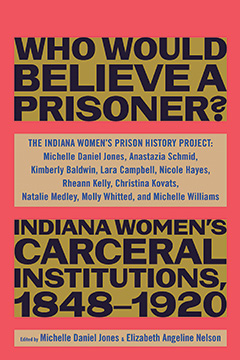Who Would Believe a Prisoner?
A groundbreaking collective work of history by a group of incarcerated scholars that resurrects the lost truth about the first women’s prison
“Inmates at America’s oldest women’s prison are writing a history of it—and exploding the myth of its benevolent founders.” —Slate
A Ms. Magazine Most Anticipated Book
What if prisoners were to write the history of their own prison? What might that tell them—and all of us—about the roots of the system that incarcerates so many millions of Americans?
In this groundbreaking and revelatory volume, a group of incarcerated women at the Indiana Women’s Prison have assembled a chronicle of what was originally known as the Indiana Reformatory Institute for Women and Girls, founded in 1873 as the first totally separate prison for women in the United States. In an effort that has already made the national news, and which was awarded the Indiana History Outstanding Project for 2016 by the Indiana Historical Society, the Indiana Women’s Prison History Project worked under conditions of sometimes-extreme duress, excavating documents, navigating draconian limitations on what information incarcerated scholars could see or access, and grappling with the unprecedented challenges stemming from co-authors living on either side of the prison walls.
With contributions from ten incarcerated or formerly incarcerated women, the result is like nothing ever produced in the historical literature: a document that is at once a shocking revelation of the roots of America’s first prison for women, and also a meditation on incarceration itself. Who Would Believe a Prisoner? is a book that will be read and studied for years to come as the nation continues to grapple with the crisis of mass incarceration.
Praise
|
|






